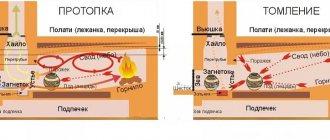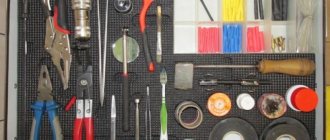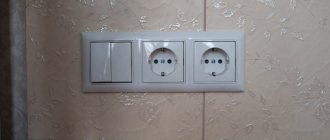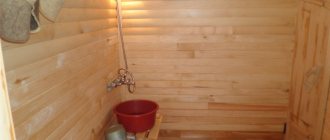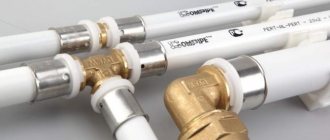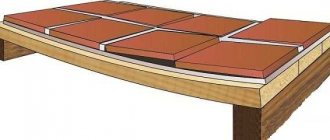Prepare your lawn for winter
The first step is to clear the lawn of debris. A layer of fallen leaves or branches will inhibit photosynthesis and can also provide an excellent home for pathogens and pests. The lawn also needs to be mulched to preserve the sown grass and reduce moisture evaporation. Do not forget about cutting the grass - this procedure in the middle zone can be carried out until the end of October. Moreover, the mowing height should be 1-2 cm higher than usual (i.e., if during the season you cut the lawn to 4 cm, now the grass height should be 5-6 cm).
In the first half of October, do not forget to feed the lawn with phosphorus-potassium or special autumn lawn fertilizer (according to the instructions). If holes and bald spots have formed on the cover, they need to be “patched” by adding soil and sowing seeds.
- Preparing the lawn for winter: what to do in the fall so that the lawn winters well
Helpful tips on how to winterize your lawn comfortably.
Conclusion
So, to prepare your dacha for winter, we recommend listening to the following tips:
- check the integrity and tightness of the roof;
- clean the water supply and install snow guards;
- check the façade for cracks and repair them;
- do a general cleaning of all rooms;
- make sure that the basement and attic are free of rats, insects and mold;
- turn off the water and gas, turn off the electricity;
- tidy up the area: remove garbage, trim tree branches, treat the soil with fertilizers;
- prepare the greenhouse for spring: disinfect, renew and fertilize the soil;
- don’t forget about the bathhouse: before leaving, heat the room and turn off the water;
- if you live in regions with a cold climate, then do additional work: mulch the soil, bend the branches of shrubs to the ground, protect the trees from large amounts of snow;
- take care of the safety of your property.
Check the well
The well does not require special preparation for winter. But if the water has acquired an unpleasant odor of hydrogen sulfide (the smell of rotten eggs) or a cloudy sediment, cleaning and disinfection measures must be taken. You can probably handle a small well (2-3 rings) on your own. Using a drainage or pump pump, pump out the water, go down into the well, and clean the walls of dirt. Then disinfect the well.
To disinfect a well, you can use tablets designed to purify pool water. They are dissolved in a bucket of water (1 tablet per 1 well ring), then the mixture is poured into a well filled with water and left for 6-8 hours. After this, the water is pumped out again.
If you clean the well in the fall, it will not be necessary to do this in the spring - regular disinfection is sufficient.
Preserve the septic tank
If you do not plan to use the septic tank at your dacha in winter, it needs to be mothballed. To do this, 2 weeks before pumping, clean the tank with bacteria by pouring them into the sewer. Then pump out the sludge from the container and rinse the equipment with water. You can also call sewer specialists for pumping.
After all procedures, the tank must be filled with water, otherwise the septic tank may become deformed under the influence of low temperatures.
- How to dispose of wastewater on site
Wastewater recycling is a constant problem for owners of country houses. However, such waste can be disposed of relatively safely.
How to prepare for winter in the northern regions
If you want to prepare your dacha for winter in the north or Siberia, then you need to take into account several nuances.
In these regions, winter is long and harsh. The winter period lasts about 6 months, and the air temperature can drop to 40 degrees. To save your crops and perennials, take care of them before frost sets in.
First, you should mulch the soil at the roots of the plants. This can be done using peat, leaves or sawdust. Mulch laid in the fall will protect the roots of the plantings from frost. In the spring it will rot and become fertilizer.
Secondly, if you have raspberries, gooseberries or rowan growing on your site, then you should bend their stems to the soil in advance. Then the snow that falls in winter will cover the shoots and prevent severe frosts from destroying the plants.
Thirdly, in Siberia, due to high snow levels, tree bark may die off. As a rule, apple, plum and cherry trees are susceptible to this. Therefore, they should be planted on special hills consisting of soil and sand. Metal or wooden protective fences can be built around the trunks.
Prepare the water supply
The water supply system at the dacha is especially vulnerable in winter, so you need to take care of its safety in advance. If you do not plan to use it in winter, then the water from the pipes will have to be drained. To do this, you need to turn off the water supply and open the drain taps at the lowest points so that the water comes out by gravity. If there are no drain valves, use an auto compressor. To blow out the pipes in your dacha for the winter, close all the valves on the manifold and attach a compressor to the pipe. Then you need to create a pressure of 3-4 atmospheres and open one of the collector taps - under air pressure, water will come out of the pipe. Repeat the procedure with each line.
To protect the pipeline outdoors and in unheated rooms, leave the valves slightly open and dismantle the mixers. Also remember to drain the water from the filters.
If the pipes are not buried deep enough, they must be insulated. To do this, place sheets of expanded polystyrene or polystyrene over the place where the pipes pass and secure it by pressing it down with bricks and digging it in.
Conduct a spring inspection of the common property of the house
Preparing a house for operation in the upcoming autumn-winter period begins with a spring inspection of the common property of the owners in the apartment building after the centralized heating supply is turned off or the snow melts (clauses 2.1.1, 5.1.6 of Rules No. 170).
The timing of the spring inspection in different regions and even in different houses is not the same: they are regulated by the regulations of the constituent entities of the Russian Federation, as well as the management agreement, the decision of the owners at the general meeting, the Charter of the owners' association or housing cooperative.
The purpose of the spring inspection of the general property of the house is to find defects or damage in the heating system of the house and other structural elements that may affect the uninterrupted supply of heat to the house during the heating season.
During the spring inspection of the house, it is necessary to check the condition of the structural elements of the apartment building and the in-house engineering systems. If necessary, repair and adjust, and then subject to hydraulic tests (clause 2.6.5 of Rules No. 170). This will help the building owner make sure that the house is ready for an uninterrupted supply of heat to the premises of the house.
In this case, two types of inspections are carried out: technical and engineering. You can do them at the same time. It is best to record the results using a photo or video camera: in this case, when analyzing the results, it will be easier to determine the extent of the damage, its location and the amount of necessary repair work.
The list of elements that the MA must check during an engineering inspection is given in paragraphs. 2.6.6, 2.6.13 of Rule No. 170. In this way, the insulation on all water and sewer pipes in the house, VDGO valves and pressure regulators, pipes and supports, shut-off valves and taps, and instrumentation are checked. It is necessary to establish that all these elements are in working order and are free of defects and corrosion.
When technically inspecting the common property of a house, the UO should pay special attention to the condition of:
- waterproofing of all premises included in the common property of the house;
- insulation on doors and windows;
- door locking systems and other locking devices;
- ceilings in basements and attics.
How can a management company prepare for the heating season?
142890
Treat basement and cellar for mold
The end of the summer season is the right time to treat the cellar and basement so that a “mold kingdom” does not develop in them over the winter. First of all, in dry weather, take all the jars outside and dry the room, and then treat the walls and other structures with an antiseptic (this procedure must be repeated every few years).
As an antiseptic, you can use a solution of copper sulfate (100 g per 1 liter of water).
Those who like to solve problems in a radical way recommend using a sulfur smoke bomb to treat the basement. Seal all ventilation holes in the empty room, cover metal parts (if any) with polyethylene. Check that there is no one in the house (you will have to leave it for a day), and then light the fuse of the checker, go out and close the doors tightly. Upon return, thoroughly ventilate all areas.
- Sulfur smoke bomb - instructions for use in the cellar and greenhouse
We tell you how to use a sulfur bomb when processing a cellar and other buildings on the site.
How to prepare a greenhouse and sauna
We are preparing for winter thoroughly, which means we need to put in order the buildings adjacent to the dacha: greenhouse, bathhouse, gazebo.
Preparing a greenhouse for winter consists of several stages:
- carry out general cleaning: remove debris and outdated plants, thoroughly wipe the frame from dirt and dust;
- remove and renew the top layer of soil to a depth of at least 15 centimeters, otherwise harmful microorganisms living in the upper layers of the earth can lead to the death of the future crop;
- to completely kill all bacteria, disinfect the greenhouse, its frames and coverings; for this use urea, copper sulfate, sulfur fumigation;
- Apply fertilizer depending on the crop being grown.
To prepare your bathhouse for winter, take the following steps:
- carry out general cleaning;
- treat the wood with a special antiseptic: it will be absorbed into the wood and protect the bathhouse from the spread of bacteria and mold;
- heat the stove and dry the room thoroughly;
- clean the stove and chimney system (close the chimney itself, if the design allows), and you can use the remaining ash as fertilizer in the beds;
- turn off and drain the water, drain all containers;
- insulate the sewer pipe if it is not insulated.
If there are other buildings on the site: a gazebo, a swimming pool or a well, then cover them with dense material, for example, a construction tarpaulin.
Protect your home from rodents
Mice in the countryside in winter can damage furniture and other property. To protect your country house from small rodents, we recommend using special repellers. Their advantage over traditional mousetraps is that the animal will not die - it will simply bypass your house. Agree, there is little pleasure in arriving at the dacha and finding mousetraps with the remains of rodents in the house.
Pour stocks of pasta, cereals and other potential mouse delicacies into sealed glass or metal jars in advance.
Security measures
In winter, your dacha can become a target for robbers. To avoid tempting criminals, remove all valuables from your home.
Burglars usually enter the house through windows, so you can install bars or metal shutters on them. If possible, install an alarm and enter into an agreement with a security company.
Preserving the toilet in the country for the winter
It is very important to ensure that the toilet does not burst during the winter due to severe frosts. As in the case of pipes, the water needs to be drained from the tank and from the overflow (it will be more convenient to scoop it out). After this, the hole must be plugged with an empty plastic bottle. We do not recommend pouring non-freezing liquids into the toilet, as this can lead to damage to the sewer system.
- 5 proven ways to get rid of odor in a country toilet
We solve the problem of eliminating odor in an outdoor toilet.
Facade insulation
Have you found out where insulation is required? Don't delay and get to work. An uninsulated house can release up to 50% of its heat outside. And this is your money. The continuous line rule will help you do the insulation correctly. You need to take on the walls, attic, roof, basement.
You will need:
- Isoroc is a mineral wool-based insulation with a porous surface. Width – 50 cm, thickness – 10 cm, length – 1 m. Density – 50 kg/m3. There are 4 mats in the package. Price – from 380 rub.
- Foam plastic PSB-S-25 with a density of 15-20 kg/cubic meter, thickness - 5 cm. Price - from 140 rubles.
Take care of your TV
If you are not afraid to leave the TV at the dacha in winter, prepare it for your long absence. Remove the batteries from the remote control (they may leak), disconnect all cables from the device and pack the TV in dry material (cloth, paper).
Household appliances should not be left near heating appliances.
When you come to your dacha in winter, do not plug in the TV right away - it needs time to “warm up”. Otherwise, a short circuit may occur due to condensation accumulated inside.
Preparing windows
In most cases, to prevent literally precious kilowatts from leaking out of a window, it is enough to seal it. And even if there are no problems immediately after installation, there is no guarantee that they will not arise in the future.
Andrey DmitrievSika technical department specialist
Polyurethane foam is used everywhere, including by window installers. But, being an excellent insulating material, it is characterized by poor resistance to external factors. Under the influence of ultraviolet radiation or moisture, such a seam gradually becomes colored and loses all its original characteristics. The best option is to repair/seal/seal seams using sealants and hybrid sealants based on silane-modified polymers.
These compounds are distinguished from conventional, universal sealants by their high elasticity, excellent adhesion to all types of substrates and resistance to any atmospheric factors.
They can be easily painted, and the tinted sealant, matched to the color of the structure, does not fade, maintaining the original color saturation.
It’s great if the windows are installed in compliance with the technology, according to GOST, the joints are immediately closed with platbands or sealed in another way, but such an idyll is rather an exception. Much more often, problems with windows appear either immediately after installation, or over time.
SomaliForumHouse Member
I'm trying to understand if I can somehow improve the situation with plastic windows in my house. The house is frame, in operation since 2014. There is a problem with the ventilation of windows and openings - some windows have blowing from under the sashes; for some - from under the windowsill. Thermal camera images for illustration. The development company does not mind carrying out the work at its own expense, but on the condition that I pay for consumables (replacement of fittings, etc.). I'm trying to figure out whether it can be mounted/made better, or whether the most reasonable option would be to not touch anything and leave it as is.
Andrey DmitrievSika technical department specialist
In this case, there are several possible solutions to the problem:
- Switch the lock to winter mode (the simplest and rarest solution);
- The window sash is not adjusted (it is not pressed down enough) and lets in the cold;
- The seal on both the sash and the window frame is missing or worn (after replacing the seal, the pressure adjustment is necessary; the window becomes difficult to close);
- There may be insufficient foaming or sealing (if we are talking about a window sill or frame). Quite often encountered when finishing from a developer. In this case, it is necessary to remove the window sill and free the frame from the slopes inside, remove the ebb from the outside and seal around the perimeter of the window using a sealant based on MS polymer. Silicone sealants are not suitable due to low adhesion, acrylic sealants are not suitable due to low elasticity. It is worth remembering that sealing from the outside is possible at a temperature not lower than +5 °C.
Wash and dry everything
Yes, it’s not just basements that are susceptible to mold. In an unheated house, the humidity is high, so take care to ventilate the rooms. Pillows, blankets, bed linen, curtains, tablecloths - all this should be washed and dried. When putting clean items in the closet, line them with silica gel (in bags) and scented sachets (juniper or lavender branches are also suitable) to prevent the fabric from becoming damp.
Before leaving for the city, oil the keyholes and door hinges so that the doors open normally in the spring.
Do a lot of laundry and wet cleaning
Before leaving, be sure to do a thorough cleaning of your country house. Dust, beat the carpets and rugs, then wash the floors in all rooms. Wash your clothes, table linen, bed linen, bedspreads and other textiles or take them with you to wash in the city. Dry all items thoroughly and only then put them in the closet. To get rid of musty smells, place scented sachets or dried lavender sprigs on your shelves. Lavender will also protect woolen items from moths. Then cover the furniture with old sheets or plastic.
Wash and dry the dishes, then store them in a cupboard or cardboard box. Wash the refrigerator and wipe down the light fixtures. Remove all food waste and place cereals, pasta, salt and sugar into glass jars with lids.
Remove tools and building materials
Surely every summer resident has a secluded corner in his yard, in which lie boards, beams, pipes and other building materials, waiting “in the wings.” It's time to sort through the "stocks". Conduct an audit - perhaps something needs to be thrown away? Rotting boards and cracked pipes are unlikely to be useful to you on the farm. Place the remaining building materials under a canopy or treat them with an antiseptic and cover them loosely with film to protect them from rain. Garden tools and put them in the utility room. Useful tips on storing garden tools await you in our materials:
- 7 solutions for compact storage of garden tools
Can't find things in the shed or at home? Are you tripping over a forgotten rake? Get your tools in order quickly using ready-made solutions!
- How to store garden equipment in winter (infographic)
Minor or major repairs, cleaning, lubricating, sharpening cutting parts - what else needs to be done while garden equipment is idle in winter?
Take care of protecting your home
Unfortunately, the reality is that there are no fewer people wanting to make money at other people’s expense. Holiday villages are still at risk when it comes to theft. Unscrupulous “comrades” are ready to grab not only obviously valuable things, for example, equipment, but in general everything that is “badly lying” (and sometimes not lying at all, but literally dug into the ground). What to do? There are enough options: alarm system, video surveillance, bars on windows, high-quality locks and high fences.

